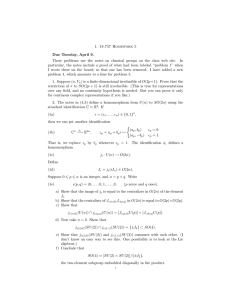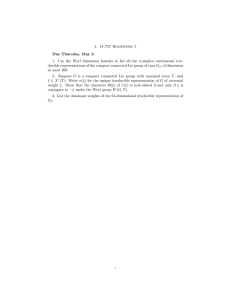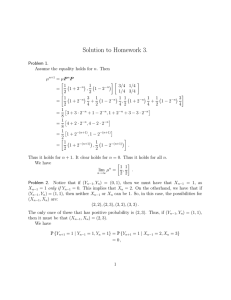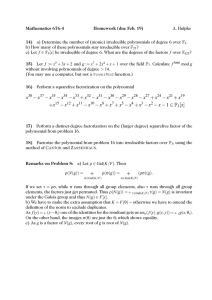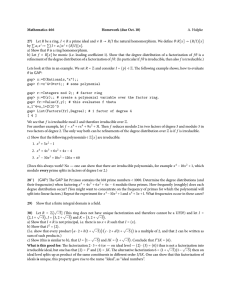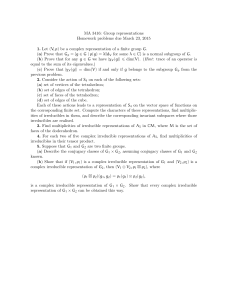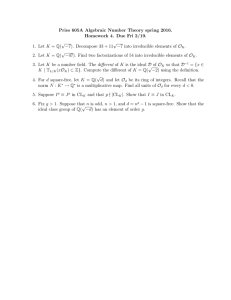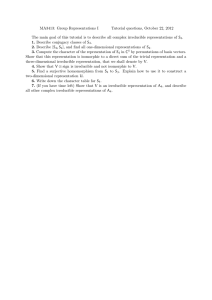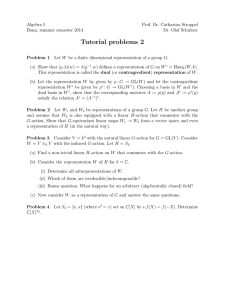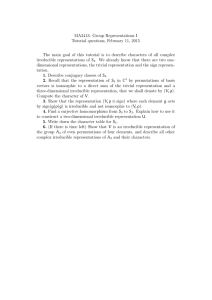THE FUNDAMENTAL THEOREM OF ARITHMETIC Suppose that an
advertisement
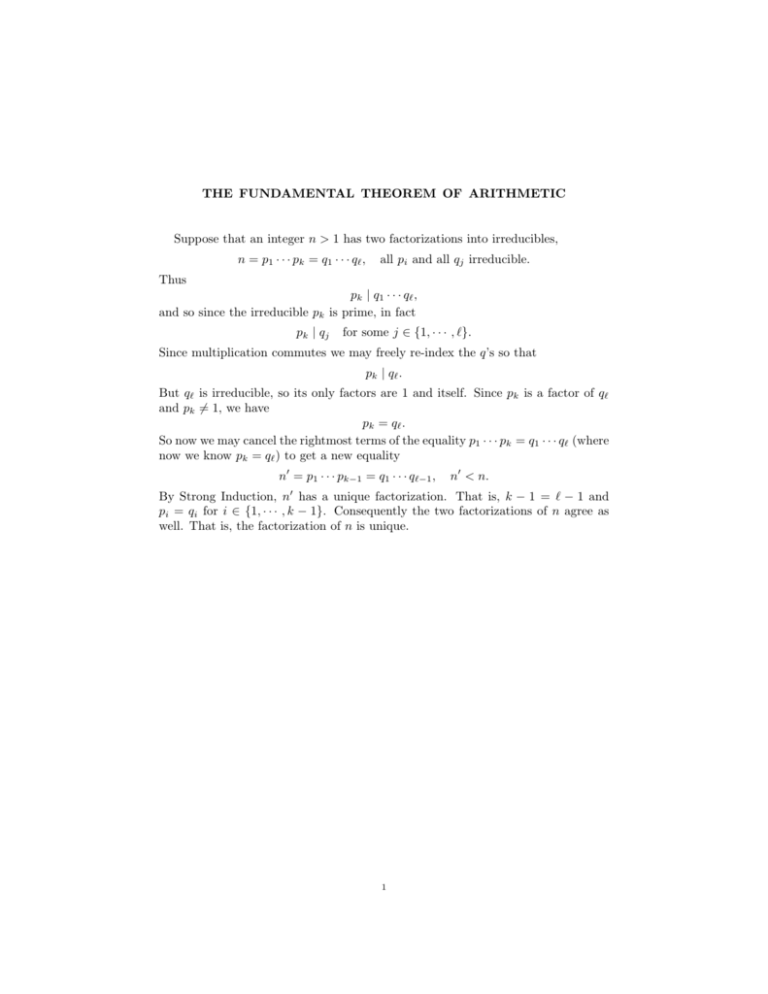
THE FUNDAMENTAL THEOREM OF ARITHMETIC
Suppose that an integer n > 1 has two factorizations into irreducibles,
n = p1 · · · pk = q1 · · · q` ,
all pi and all qj irreducible.
Thus
pk | q1 · · · q` ,
and so since the irreducible pk is prime, in fact
pk | qj
for some j ∈ {1, · · · , `}.
Since multiplication commutes we may freely re-index the q’s so that
pk | q` .
But q` is irreducible, so its only factors are 1 and itself. Since pk is a factor of q`
and pk 6= 1, we have
pk = q` .
So now we may cancel the rightmost terms of the equality p1 · · · pk = q1 · · · q` (where
now we know pk = q` ) to get a new equality
n0 = p1 · · · pk−1 = q1 · · · q`−1 ,
n0 < n.
By Strong Induction, n0 has a unique factorization. That is, k − 1 = ` − 1 and
pi = qi for i ∈ {1, · · · , k − 1}. Consequently the two factorizations of n agree as
well. That is, the factorization of n is unique.
1
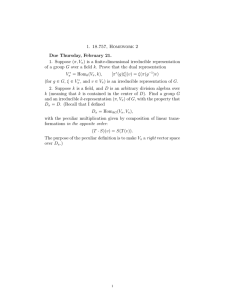
![Let f ∈ R[x] be monic and f = are f](http://s2.studylib.net/store/data/013191687_1-9cbfd34ba08349780ce1f7f8a6612a99-300x300.png)
